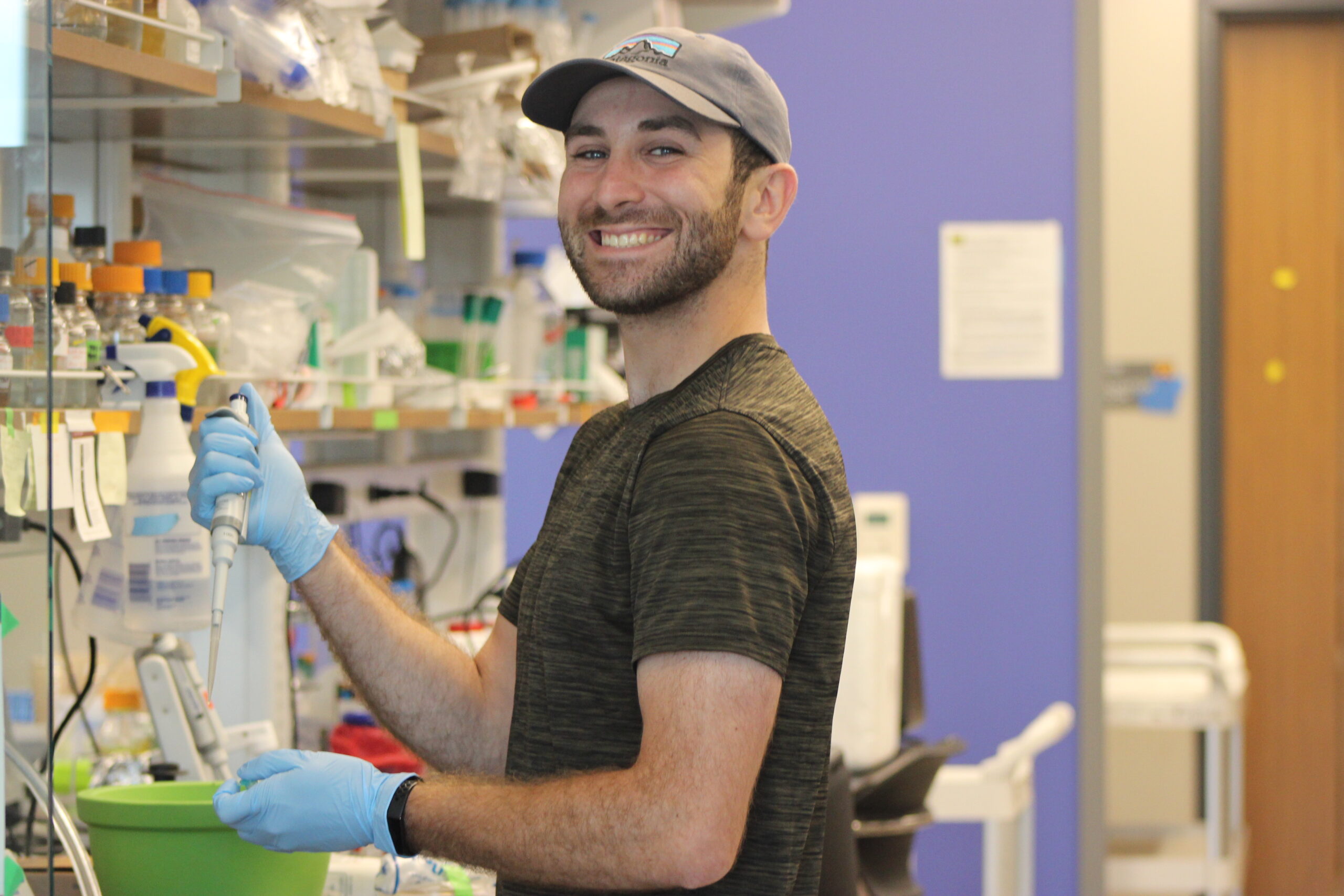Andy Wagner – Graduate Student Spotlight

Chances are, many have heard of the fungal pathogen Candida albicans without realizing it. The pathogen causes many diseases, including yeast infections, which cause significant issues for women worldwide, and thrush, which is a mouth yeast infection that is common in babies and AIDS sufferers.
Andy Wagner, a doctoral researcher in Todd Reynolds’s lab, focuses his work on this pesky pathogen. Wagner explains that while yeast infections may be uncomfortable, they are generally mild and easily treated; however, Candida albicans can occasionally cause bloodstream infections. Although rare, these infections have a mortality rate of about 30-50 percent, and they can be especially problematic for people with compromised immune systems.
Wagner’s work specifically focuses on the idea that microbiologists can alter how the disease is recognized by the patient’s immune system to create a more favorable outcome for the patient. To make these alterations, Wagner focuses on Candida albicans’ cell wall, which is composed of three main layers: a basal layer composed of chitin, a middle layer composed of beta glucans, and an outer protein coat.
“The host’s immune system recognizes the beta glucans layer of this cell wall,” Wagner explains. “The outer protein coat serves as a barrier that prevents it from being recognized by the host immune system.”
Inducing the cell to expose its beta glucans layer is no easy task.
“There are signal transduction pathways that sense an outside change and will transmit the signal into the fungus to make it change its structural organization,” Wagner explains. “We found that if we can disrupt these signal transduction pathways, we can get the fungus to inappropriately expose the beta glucans layer.”
Essentially, by altering the signaling pathways, Wagner alters how the cell wall is made. Currently, he is seeing overproduction of the basal layer and underproduction of the outer protein layer.
“The basal layer is definitely being affected, which prevents the cell wall from being put together correctly,” Wager states. That, in turn, is making the recognizable basal layer more visible to the host’s immune receptors. This process is aptly termed “unmasking.”
Wagner’s results are promising. “If we infect mice with these mutant fungus cells, we find they are able to recognize and clear the infection and survive longer,” he smiles.
In the future, Wagner wants to continue working on disease-causing fungi, and he is hopeful that unmasking can be applied to other fungi as well.